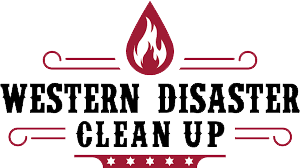So, you’ve had a house fire, and parts of your home have smoke damage. What happens next?
Just because the fire is out doesn’t mean the danger is over. Smoke damage can negatively impact your health, and if it is extensive enough, it may ruin your home. Taking the proper steps to evaluate the situation can help prevent future smoke exposure problems.
Generally, it is best to use caution when cleaning up after a home fire. Be wary of chemicals, potentially smoldering areas, and structural hazards that come with fire damage. Smoke damage can have severe ramifications on your health.
How Smoke Damage Can Ruin Your Home
Smoke is comprised of ash and particles left over after something has been burned. The primary danger posed by smoke is in the particles it disperses into the air.
This is not limited to ash dispersed by fire but ash and soot spread by cleanup efforts. Removing burned items and debris can stir up piles of settled ash, reintroducing harmful components to the environment.
Structures and materials damaged by smoke can retain some of these tiny particles. If they are knocked loose through regular cleaning or naturally fall away and float free in your home, you risk inhaling them.
A home that doesn’t have its smoke damage restored becomes a hazard for certain groups of people.
Health Risks of Particle Smoke Damage
These particles are toxic if inhaled. According to the CDC, these toxins, if inhaled, “can cause a range of health problems, from burning eyes and a runny nose to aggravated chronic heart and lung diseases.”
Some people are more at risk than others. Some groups should exert more caution around smoke and fire damage due to their higher risk.
- People with existing heart or lung problems — Preexisting heart and lung problems can be aggravated by ash and smoke particles. Problems like cardiac arrest or issues breathing can be triggered by ash and smoke. High levels of exposure and health issues create a dangerous combination.
- The Elderly — As we age, our bodies become frailer. Older people are more likely to have preexisting problems that can be triggered by smoke and ash. The elderly who are on oxygen, for example, may get particles in their lungs that their bodies cannot clear out. Older adults should stay clear of fire damage.
- Children and Teens — We sometimes believe that children and teens are young, hardy, and can endure anything. This is far from the truth. Children and teens are still growing and developing the brain, lungs, and other essential organs that will sustain them for decades to come.
- Pregnant Women — The risk of any stray particles getting into a woman’s body puts the fetus at risk. Ash and smoke contain chemicals that can contribute to cancer, among other illnesses.
The health risks from smoke damage are significant enough that you wouldn’t want to risk overexposing yourself to them.
Additional Hazards After Fire Damage
The average household contains a number of cleaning chemicals. Some are relatively harmless and cause minimal irritation. Others are highly toxic and can severely damage or irritate your skin.
Remember that some of the chemicals you keep in your home are likely to explode. Poorly stored chemicals can even be the source of a fire.
If the chemicals are not causing a fire, the smoke and chemical reactions undergone during a fire can contaminate smoke and ash, making it even more deadly.
For example, burning wood, fabrics, and plastics can form hydrogen cyanide, a very toxic gas. For reference, hydrogen cyanide was developed for use in chemical warfare during World War I. It was not deemed fit for use in war, but it was still counted among the arsenal of deadly chemical weapons used for war.
These toxins adhere to your walls, ceilings, furniture, carpets, and many other household items. While small amounts of exposure are not likely lethal, continuous exposure can increase your risk of a cascade of health problems.
Don’t stay long-term in a house devastated by smoke or fire. Be sure to clean up your home as soon as possible and thoroughly clean any clothes or objects recovered from the home.
Toxins From Fire Retardant
Firefighters often put out home fires. Some homes may get smoke or fire damage from a wildfire. Be aware of fire retardants if you are coming back home after evacuating from a wildfire.
The fire retardants used to fight wildfires aren’t very toxic, but you shouldn’t keep them around. Be sure to wash off any surfaces contaminated with a fire retardant.
Avoid using chemicals to clean as they can mix with the fire retardant and create toxic gasses.
Retardant is made from biodegradable materials and so will dissipate eventually, but it would be good for you to give your house, belongings, and vegetation a good hose-down anyway.
Do not ingest or allow your kids or pets to ingest this material. Biodegradable does not mean human-friendly. Keep your loved ones safe!
Using Caution When Cleaning Up
When you are cleaning up smoke damage in your home, be wary of the surfaces you touch. Smoke damage can contain harmful chemicals that can cause skin irritation and other health problems.
If you are cleaning up without the help of a professional, remember to wear personal protective equipment such as a mask, gloves, and eye protection. Taking preventative action against the harmful effects of smoke can save you from lots of health problems in the future.
Western Disasters Cleanup — A Local Cleanup Professional
If you have experienced a home fire and smoke damage in your home, get qualified professionals to help you recover. Smoke damage can be toxic, especially if you are predisposed to preexisting conditions.
Call us today or visit our website to see how we can help you recover from smoke and fire damage.

